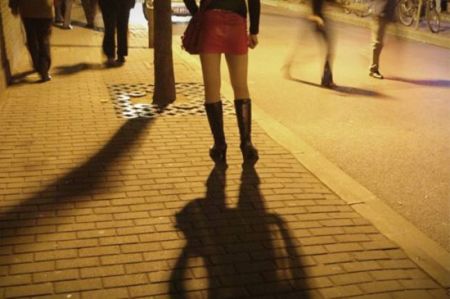Hollywood is driving global sex trafficking epidemic by glamorizing porn, Christian activist says

Hollywood's normalization of pornography is feeding the sex trafficking industry, says Noel Yeatts, president of the anti-trafficking organization World Help.
“The United States is the number one consumer of sex worldwide, and we’ve become numb enough to pornography that we’re fine with films and TV shows that glamorize this particular issue,” Yeatts told The Christian Post. “The danger here is that we forget there are people behind this issue, and it causes us to become cold to the sex-trafficking epidemic that is right on our doorstep.”
“As Christians,” she added, “we have an incredible opportunity to make a difference. In this #MeToo world we live in, we can’t forget that there are women who have been saying that for hundreds of years, yet no one has been listening. Together, we can change that.”
World Help exists to rescue vulnerable girls from sex trafficking and help them pursue their dreams. The organization ministers in Thailand and India, and focuses on meeting urgent physical needs while also investing in sustainable solutions in the fight against poverty and spiritual darkness. Since 1991, the group has touched the lives of nearly 84 million people and saved countless women and girls from the sex trafficking industry.
“What we do is rescue girls from the sex industry and give them a second chance,” Yeatts said. “We house them in one of our freedom homes and give them an education, spiritual discipleship, and a safe place to live.”
Yeatts cited the high rates of poverty and hardship in tribal communities across both India and Thailand as a driving force behind the sex trafficking epidemic. Oftentimes, girls enter into prostitution because they are expected to provide for their families. Many of them, she revealed, are just 9 to 14 years old.
“A lot of people don’t understand extreme poverty drives this business globally,” she said. “In reality, poverty is the pimp. Girls come from rural areas of extreme poverty with the burden of providing for their families. They end up in bars because it’s the only place that will give them a safe place to live. One thing leads to another, and before they know it, they're trapped in this industry.”
In Bangkok, a city known as Southeast Asia's “gateway for human trafficking,” upward of 30,000 girls can be found working in well over 1,000 bars, Yeatts said, and that number is growing.
“I talked to one girl at a bar and I was surprised to see how much we had in common,” she recalled. “She pulled out her phone and showed me her son, and then it hit me that our lives could not be further apart. We wanted the same things, like providing for our children, but I have resources and she doesn't. Poverty had robbed her of any opportunity.”
World Help’s freedom homes have housed hundreds of girls over the years, giving new life to those captured in the sex industry.
“I’m always struck by the difference between the girls on the street and in the home,” Yeatts said. “In the home, they’re little girls dancing and playing, but the laughing and dancing doesn’t tell the whole story because these girls’ stories were full of physical and sexual abuse, child pornography, and abandonment and hunger. It’s heartbreaking.”
“Because of this home, these girls are receiving the help they need and they’re beginning to heal,” she continued. “One little girl said to me, ‘I’ve been lonely for a very long time. But I feel love here. I’ve begun to dream again.’”
All Christian in the U.S. have a role to play in preventing abuse worldwide, Yeatts said, noting that the first step in ending sex trafficking is educating children.
“I see American men on the streets and in the bars and it makes me wonder — what are we teaching our kids and youth? Why is this behavior normalized and accepted as adults?” she asked. “The way we combat this is to make it unacceptable and stop the demand. When you look at this issue, you have to understand our country is creating the demand.”
All it takes is $50 to help introduce one girl to freedom and break the chains of slavery, Yeatts said, reiterating her belief that “poverty is the pimp.”
“That’s why we place such an emphasis on education in our homes,” she said. “Anyone can join this global fight against sex trafficking, whether it’s through donations or prayer. I believe that if all of us unite, we can end this vicious cycle.”





















